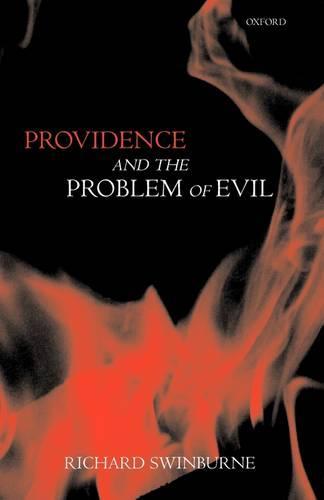Full Product Details
Author: Richard Swinburne (Nolloth Professor of the Philosophy of the Christian Religion, Nolloth Professor of the Philosophy of the Christian Religion, University of Oxford)
Publisher: Oxford University Press
Imprint: Oxford University Press
Dimensions:
Width: 14.20cm
, Height: 1.80cm
, Length: 21.60cm
Weight: 0.388kg
ISBN: 9780198237983
ISBN 10: 0198237987
Pages: 278
Publication Date: 27 August 1998
Audience:
Professional and scholarly
,
Professional & Vocational
Format: Paperback
Publisher's Status: Active
Availability: To order

Stock availability from the supplier is unknown. We will order it for you and ship this item to you once it is received by us.
Reviews
Swinburne's procedure is to examine one by one the various goods that the world promises, and then to argue, with his customary care and rigour, that none of these goods can logically occur without the possibility of the related evils which in fact we experience. * Church Times * the value of this book should not be underestimated. It provides a philosphically informed, comprehensive theodicy, sensitive to the concerns of Christian tradition, proving that the problem is not so intractable as it may first appear. This book should be required reading for all serious students of apologetics and philosophical theology. * Patrick Richmond, Themelios Vol 25:1 * This book, the fourth in a tetralogy on philosophical questions raised by Christianity, is of the quality that readers expect of Swinburne, and will undoubtedly command the same degree of respect and attention as have his earlier works. * The Philosophical Review, vol.110, no.1 * The endeavor to take each kind of evil and relate it to some good is more complete than any I have seen in any contemporary work. Especially interesting here is the discussion ... of just how surprisingly valuable our natural disposition to sloth may be. Perhaps the most important novelty of the book, though, consists in its emphasis on the value of being of use. The ramifications that this oft-overlooked value has on theodicy are substantial, and Swinburne does a real service in pointing them out. * The Philosophical Review, vol.110, no.1 *
The endeavor to take each kind of evil and relate it to some good is more complete than any I have seen in any contemporary work. Especially interesting here is the discussion ... of just how surprisingly valuable our natural disposition to sloth may be. Perhaps the most important novelty of the book, though, consists in its emphasis on the value of being of use. The ramifications that this oft-overlooked value has on theodicy are substantial, and Swinburne does a real service in pointing them out. The Philosophical Review, vol.110, no.1 This book, the fourth in a tetralogy on philosophical questions raised by Christianity, is of the quality that readers expect of Swinburne, and will undoubtedly command the same degree of respect and attention as have his earlier works. The Philosophical Review, vol.110, no.1 the value of this book should not be underestimated. It provides a philosphically informed, comprehensive theodicy, sensitive to the concerns of Christian tradition, proving that the problem is not so intractable as it may first appear. This book should be required reading for all serious students of apologetics and philosophical theology. Patrick Richmond, Themelios Vol 25:1 Swinburne's procedure is to examine one by one the various goods that the world promises, and then to argue, with his customary care and rigour, that none of these goods can logically occur without the possibility of the related evils which in fact we experience. Church Times
Author Information
Richard Swinburne has been Nolloth Professor of the Philosophy of the Christian Religion at the University of Oxford since 1985; he is a Fellow of the British Academy.




